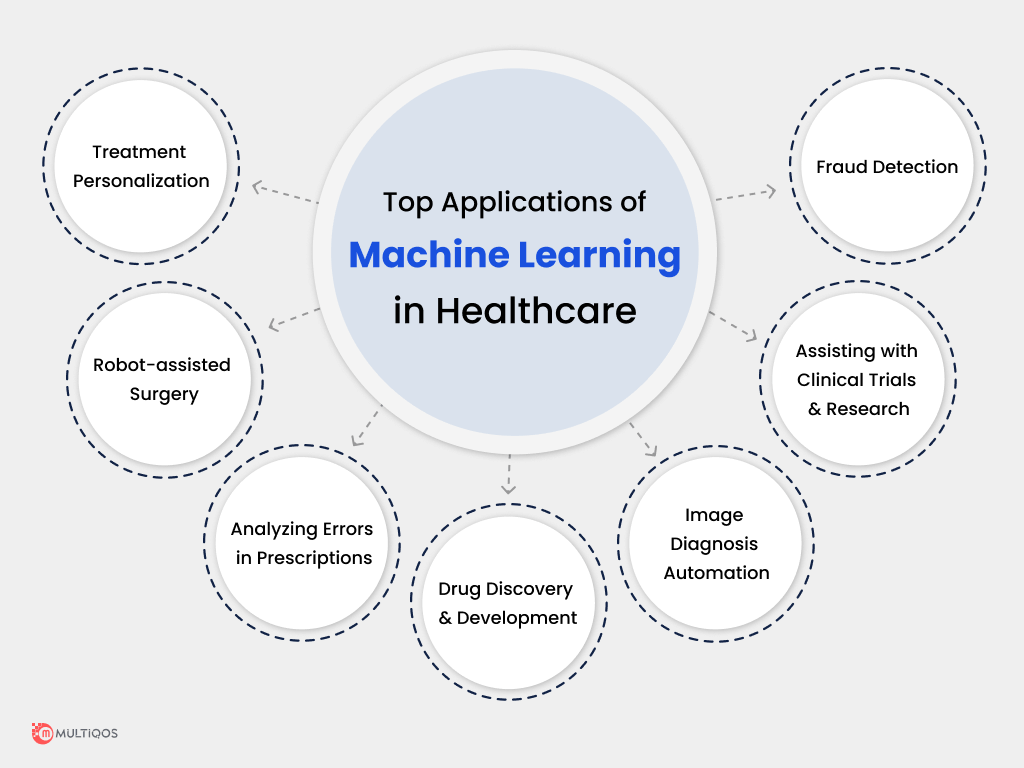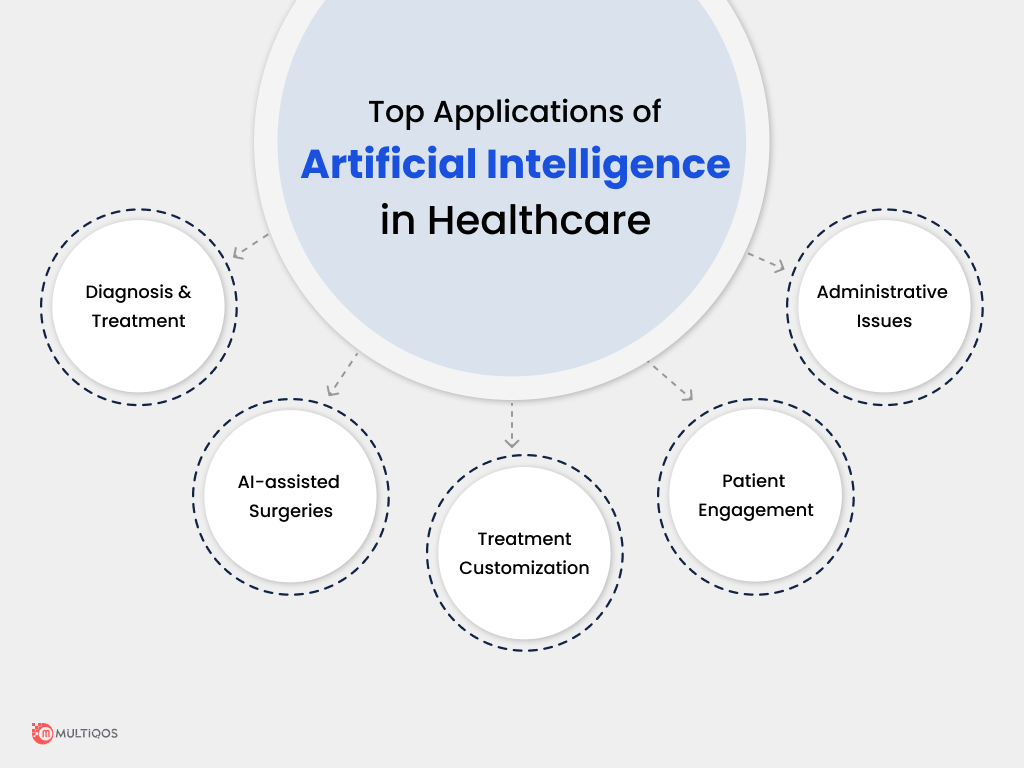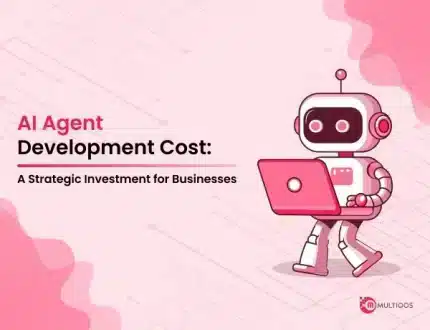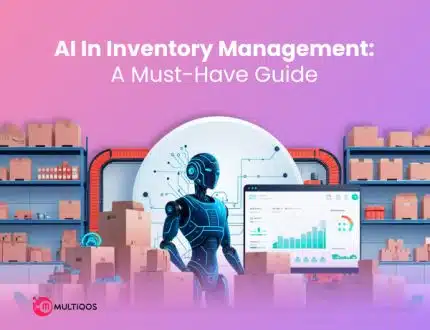How AI and ML Are Transforming the Medicine and Healthcare Industry?
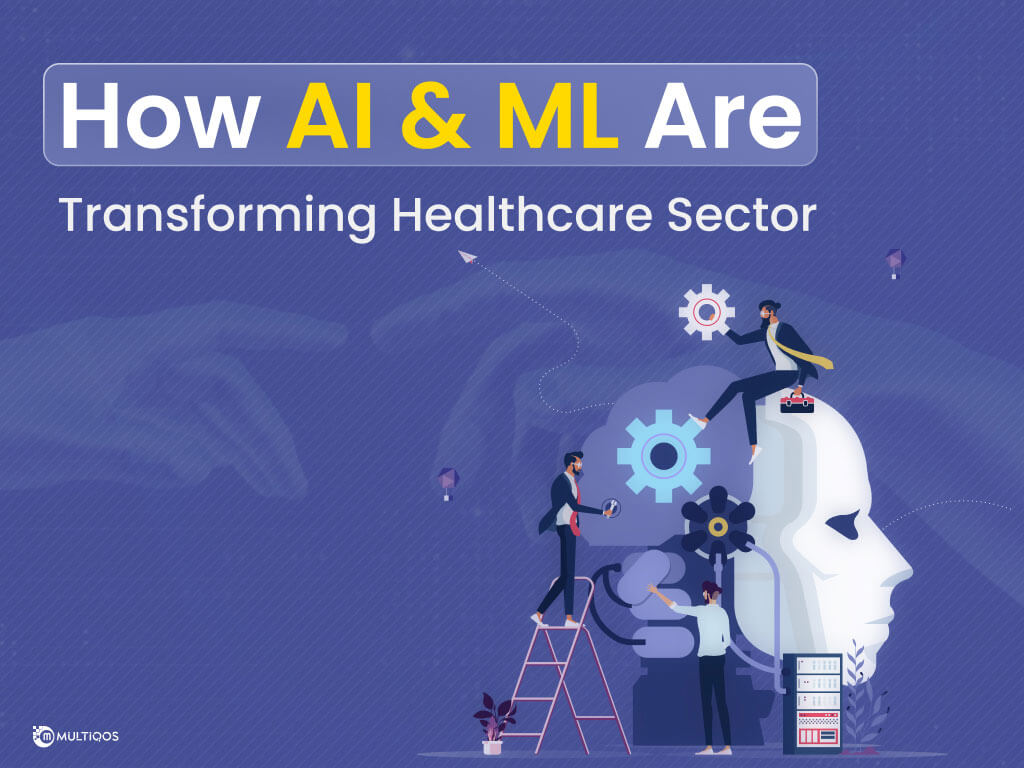
Table of Contents
The Rise of Health Mobile Apps – A Market Overview
The term “mobile health,” or “mHealth,” refers to the practice of providing medical care and other public health services via mobile devices. As digitization spreads to all parts of the healthcare business, mHealth Applications’ usage has significantly increased.
Smartphone adoption fueled the fast proliferation of mHealth applications. In 2020, it earned $40.05 million. Between 2021 and 2030, the market is estimated to increase at a CAGR of 17.7 percent. Over 31.000 applications in mobile health offer health services to individuals and medical facilities. This figure is steadily increasing.
Mobile health is a vast industry with several investment and commercial potential. New technology and business concepts are still scarce in this market. The present picture suggests that the United States, United Kingdom, Germany, Canada, and Israel have a lot of promise. Because of its appealing market, mHealth is positioned to become an ecosystem, and it will provide digital solutions that will enhance people’s quality of life. The mHealth App Development is set to become the future of medical app development. There has been a substantial increase in the healthcare mobile app development solutions and investment in health care application project.
The Scope of Innovations in the Field of Healthcare
Some of the major innovations in the field of healthcare are:
Next-generation Sequencing
Genetic sequencing to identify at-risk groups or tailor medicines to patients who are likely to react to them.
3D-Printed Devices
Low-cost, highly personalized medical technology devices may be adjusted to specific patients’ physiological demands.
Point-Of-Care Diagnostics
Improve patient care by making it easier and faster to conduct testing at the point of care (such as a doctor’s office, hospital, or ambulance).
Artificial Intelligence
This is the capacity of computers to think like people and do tasks with faster speed, accuracy, and reduced resource use.
Virtual Reality
Simulated settings that might help patients modify their behaviour in a safer, more comfortable, and more accessible manner.
Using Social Media to Enhance the Patient Experience
By using data from social media and online communities, health care organizations can track customer experience and population health trends in real time.
Immunotherapy
Treatments that have the potential to greatly increase cancer patients’ survival without the unpleasant side effects and associated healthcare expenses associated with standard chemotherapy.
Biosensors and Trackers
Activity trackers, monitors, and sensors embedded in clothes, accessories, and gadgets allow consumers and professionals to monitor health conveniently.
Telehealth
A more comfortable alternative for customers to access and improve their self-care while possibly lowering office visits and travel time; it may help minimize problems and emergency department visits.
Convenient Care
Retail clinics and urgent care centres that provide customers with more convenient and affordable treatment for a variety of health problems.
Also Read: 10 Top Web Development Frameworks in 2024
What Technologies Are Used in Healthcare Applications?
Apps and IoT make healthcare more efficient, which is already a wise move. Smartwatches and wearables, as well as fitness trackers, smartwatches, smartwatches, and health gadgets, are examples of IoT devices. They all provide continuous data collecting and synchronization using mobile applications. For example, this system can remotely transmit patient data to a doctor, allowing further therapy.
The majority of mHealth functionality is powered by AI and ML since these two technologies will form the backbone of future healthcare.
Statistics
- The effect of AI/ML game-changing technology on mobile healthcare has resulted in tremendous market growth. The market is estimated to reach 35.892 million by 2030. In 2021, it will have already surpassed $6.6 billion.
- AI will fuel 80% of mobile technologies and this shows how AI is used in healthcare applications.
- AI and machine learning are anticipated to replace 16% of US employment by 2025.
- The market for AI-powered wearables is anticipated to reach $180 billion by 2025.
- By 2030, China will control 26% of the global AI market.
- AI applications will save the United States $150 billion in healthcare costs.
What Are the Applications of ML & AI?
Applications of ML
ML technologies have shown to be majorly beneficial for the healthcare business, from increasing hospital efficiency to providing precise diagnoses. Here are some essential machine learning applications for greater user engagement and revenue generation in the healthcare business.
Treatment Personalization
One of the most essential machine learning use cases in the healthcare industry is the provision of individualized therapies. Evaluating individuals’ medical histories, symptoms, and tests enables healthcare organizations to provide tailored patient care. Healthcare companies may also have access to analysis based on the patient’s electronic health data with ML. Furthermore, machine learning in healthcare may help clinicians determine if patients are ready for prescription adjustments.
Robot-assisted Surgery
These devices can perform complex surgical operations with no blood loss, side effects, or discomfort hazards. Furthermore, post-surgery recuperation is significantly quicker and smoother. In addition, professionals and surgeons that use ML in medicine and healthcare get real-time information and insights about a patient’s present health status.
Analyzing Errors in Prescriptions
ML models examine historical EHR data and compare it to current prescriptions. Those prescriptions that depart from the norm are noted so that physicians may analyze and amend them. In addition to cost savings, an ML-powered error detection system improves care quality by reducing medication overdose and health concerns.
Drug Discovery and Development
ML has the potential to identify novel medications with high economic value for pharmaceutical companies, hospitals, and patients. It also makes the medication development process more efficient and cost-effective.
Image Diagnosis Automation
Hospitals and clinics utilize machine learning to detect anomalies in many types of medical pictures, such as MRI or radiology scans. Image recognition helps physicians diagnose liver and kidney infections and malignancies and improve cancer prognosis, among other things.
Assisting with Clinical Trials and Research
Clinical trials and research are both expensive and time-consuming operations. There is a valid reason for this: new pharmaceuticals and medical treatments must be proved safe before they are widely utilized. Fortunately, ML algorithms can speed up the process. These algorithms may assist in determining the appropriate sample size for the trial, collecting additional data points, analyzing ongoing data from trial participants, and reducing data-based mistakes.
Fraud Detection
The healthcare business may use machine learning models to identify invalid claims before they are paid for and speed up the approval, processing, and payment of genuine claims. Aside from recognizing insurance fraud, ML also protects against patient data theft.
Applications of AI
If you are wondering how is AI helping in the healthcare industry, then here are some of the applications of AI in the healthcare industry.
Diagnosis and Treatment
AI-powered apps may assist improve illness diagnosis accuracy. Machines that have been specifically trained can scan large amounts of data and find anomalies and early indicators of sickness. For example, tech firms are working on developing an app that measures a person’s heart rate regularly and alerts users to potential health problems.
AI-assisted Surgeries
Modern operations may become more successful in terms of decision-making, patient-centred therapy, and scenario analysis using an AI-based approach. Robots have been shown to be beneficial in evaluating the patient’s past surgery history and offering timely recommendations on the optimal tool and surgical approaches.
Treatment Customization
Personalized care is a key problem in the healthcare sector since every patient desires a better cure, more attention, and successful medical treatment. With their capacity to self-train, AI algorithms may provide value to the problem of individualized treatment in healthcare.
Patient Engagement
Even when physicians construct tailored healthcare plans, they have minimal impact since patients fail to follow fundamental procedures such as taking drugs or scheduling check-ups. Increasing patient participation will not only enhance the patient experience but will also result in cash inflows. This is another benefits of AI in healthcare, where AI algorithms can motivate patients to complete certain behaviours by using pop-up notifications and goal-oriented information.
Administrative Issues
Robotic Process Automation systems can process claims, maintain healthcare records, and manage the revenue cycle. A computerized solution to administrative activities like this may save up to one-fourth of medical staff’s time executing such procedures.
Artificial Intelligence in the mHealth Industry
Artificial intelligence in healthcare is quintessential for healthcare automation. Automation is required in the healthcare business, which could soon confront a 9.9 million physician shortfall. The term “artificial intelligence” is often used to refer to human intelligence, and it defines what is AI in healthcare. It refers to a computer program’s or computer program’s capacity to complete tasks. To allow devices to perceive, acquire data, and make predictions, mobile technology employs a variety of algorithms. The Healthcare mobile app development services you hire would help you implement these features in the mHealth applications.
Machine Learning in the Healthcare Industry
Machine Learning, among other advantages, is producing excellent outcomes in the prevention of illnesses such as breast cancer. This is due to Machine Learning and picture and pattern recognition. As mobile app developers, we are experimenting with several AI fields. Because of ML, health practitioners may establish an early diagnosis, which aids in decision-making. As a result, it improves the odds of detecting and treating a potential illness in a timely manner. Another area where experts see considerable potential for ML is in predicting the outcomes of potential medical treatments. For example, they might predict how the patient’s body would react to therapy by inputting her data. It aids in our quest for the method that best meets her requirements and has the greatest chance of success.
How Can MultiQoS Help Your Business Adopt ML and AI?
MultiQoS collaborates with healthcare organizations on various unique AI and ML-based models that increase revenue, lower expenses, and provide a better customer experience.
Final Thoughts
AI and machine learning will bring the sector one step closer to new generations of healthcare. It is feasible to solve security, data storage, and precision difficulties. AI and ML have the potential to transform the healthcare business in a variety of ways completely. While many healthcare companies have already used AI and ML in their systems, many are searching for software engineers to design ML and AI-driven solutions tailored to their unique needs. As we can see, artificial intelligence and healthcare work hand in hand in shaping the mhealth app development solutions due to the many advantages that this technology provides. Despite the obstacles, AI and ML in healthcare may result in more accurate diagnosis and treatment regimens and improved overall patient outcomes. As a result, all healthcare institutions must invest in AI and ML technologies in order to provide clients with unique experiences and exceptional services. You can hire AI and ML software development services for healthcare web application development who can guide you through the entire app development in the healthcare industry. The Mobile Application Development Service you hire would also explain the breakdown of healthcare app development cost.
Need Healthcare Software Development?
Providing top-tier healthcare app and software development for optimal medical care.
FAQ on ML and AI in Healthcare
Artificial intelligence (AI) is one of the most significant and disruptive technologies of our time. When AI software is applied in any business, machine-learning algorithms and computer programs analyze massive amounts of data to discover patterns, speeding up processes and resolving complicated problems. For example, in the healthcare market, hospital management software and other AI-powered healthcare solutions give a slew of advantages, such as supporting healthcare professionals in making better choices and improving the efficiency of detecting health conditions.
The use of AI and ML is the most significant technological advance in the healthcare business. These technologies allow the digitalization of healthcare for the smartphone-centric generation. This technology is intended to produce intelligent and self-contained machines that can function without human intervention.
Get In Touch

